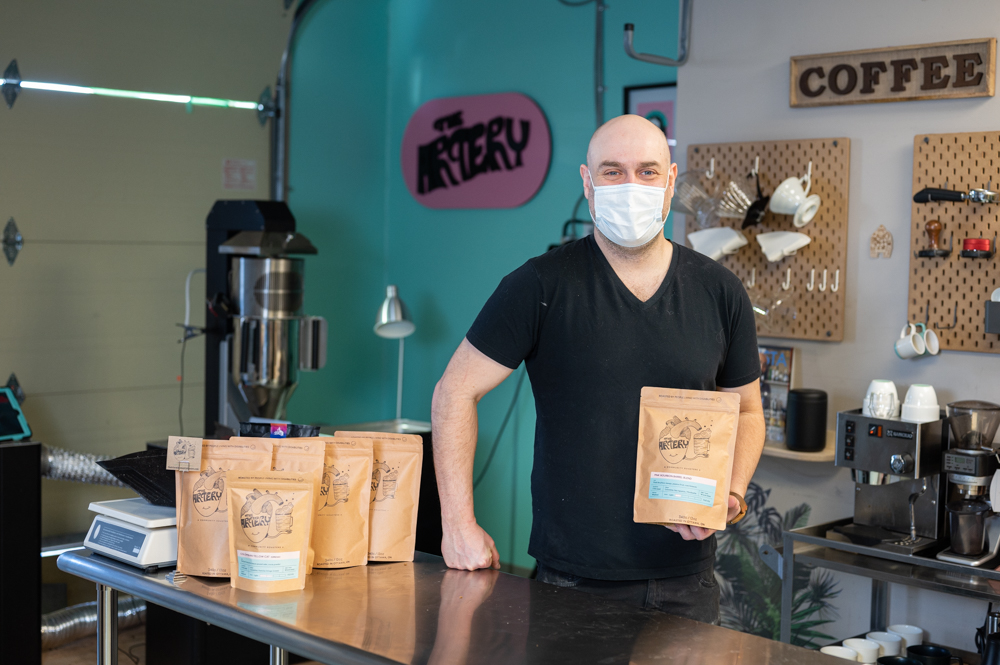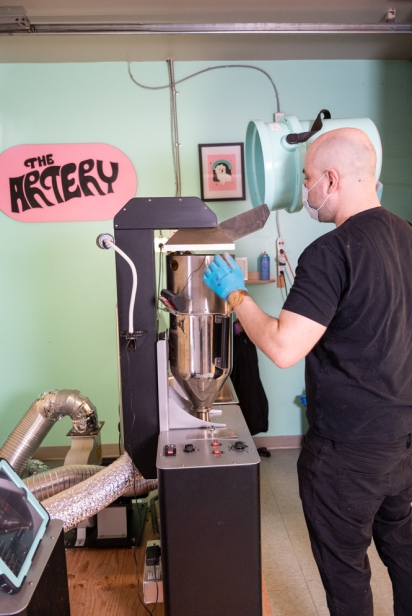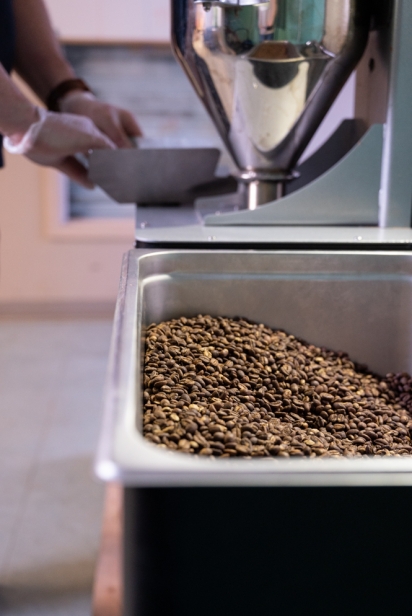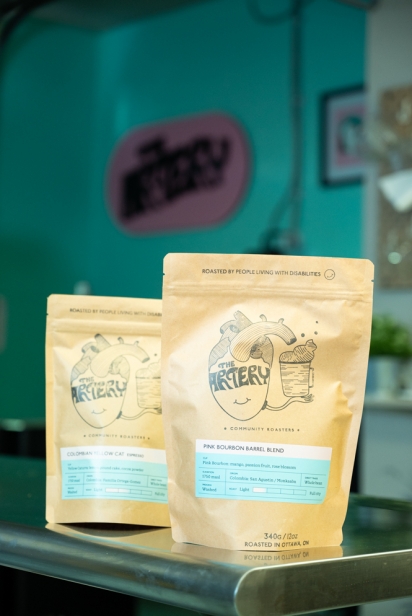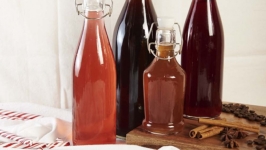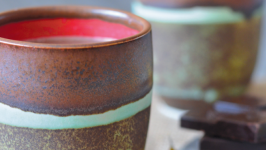The Artery Community Roasters
Will Wells, a self-proclaimed coffee snob and owner of The Artery Community Roasters, is excited about its newly launched varieties, including a much anticipated and relentlessly requested dark roast. There will also be two pink bourbon coffees on offer, which he describes as tasting almost like frozen strawberries.
Wells, a professional writer by trade, is humble about his specialty coffee passion project that he started at the end of last year. “We're not doctors or frontline health-care workers. We're just roasting coffee. I love coffee. But let's not take ourselves too seriously.”
However, despite his self-effacing demeanour, Wells is doing something rather special after all. The Artery Community Roasters produces a range of delicious specialty coffee either by the bag or in a subscription box, but the true beating heart of this business is in creating equity for disenfranchised people here in Ottawa and further afield.
Wells was inspired to try home roasting after a conversation with an Ethiopian taxi driver more than a decade ago, who encouraged him to try roasting coffee beans in a frying pan. After some trial and error, he went from an enthusiastic garage roaster to an entrepreneur who created a social enterprise that hires people with disabilities in the community. He currently has three staff members and hopes to increase this number in the future.
That dark roast locals have been asking for is called the Stephen Hawkbean: Black Hole Roast. It’s at the helm of a tradition of honouring people with disabilities in some of the coffee names.
The pandemic has been particularly isolating for people with disabilities as community supports had to close their doors and services have been cut. Wells says able-bodied people and those who are considered neurotypical have approximately 150 social connections, whereas someone with a cognitive disability may only have a circle of two or three people. Rewarding work gives people living with disabilities financial security, but also increases their support network.
Wells’ volunteer work in disability advocacy started when his wife introduced him to the matching program through Able2.
This Ottawa-based charity connects children, adults and seniors living with disabilities to a buddy in the community.
Here, he made many friends and heard how difficult it is to access the workforce when you have a disability. He decided to combine his passion for advocacy and coffee, but knew that to really make an impact he had to create a community.
“It's not just about giving people money, even though we do pay a starting salary of $16 an hour. It’s also about having a sense of belonging, being on the team, which is something we can take for granted. Going to work is sometimes a drag, but for some people, it's their only interaction for the week.”
The social enterprise ethos of the company isn’t restricted to hiring, Wells also cares about the source of his coffee beans and that farmers are treated fairly. At the site that produces the Stephen Hawkbean: Black Hole Roast beans, it’s essential that worker’s rights are respected.
“All the farmers and all the workers get paid a pension on top of fair wages, which is awesome.”
The Artery Community Roasters’ most popular coffee is the Colombian Red Cat, which has notes of apple juice, yellow fruits and milk chocolate. This coffee is grown by the Ortega family and represents three generations of coffee-makers living in the village of San Agustin, Colombia.
Grower Esnaider Ortega, grandson of Ortega patriarch Don Paulo Emilio Ortega, often appears on the brand’s social media pages and Wells considers him a friend. “We just want to build relationships with the farmers. The people who are growing our coffee are commenting on our page every day. The farmer I work with calls me amigo, that’s what direct trade actually means.”
Wells’ favourite coffee is his half-caf blend called Curb Your Caffeineism, so named in honour of comedian Larry David. This coffee continues the socially conscious theme as it includes beans from an Indigenous land-defending group of Xinca farmers from the Cafe Colis Resistencia movement in Guatemala.
Wells uses a fluid bed roaster from Idaho company Coffee Crafters. It runs on hot air rather than gas to roast up to 60 pounds of coffee beans an hour.
“What I really like about this machine is that somebody who was in a wheelchair would be able to control the settings. It's more accessible than some of the bigger, older machines where you need to walk up on a ladder to dump the beans in. It suits our needs and it really does produce a super clean coffee.”
Transparency is an overarching theme of Wells’ business model, in relation to wages, the source of the coffee and the company’s commitment to minimizing damage to the environment. Deliveries are carbon-neutral, thanks to his bike courier and the packaging is biodegradable. With a partnership with The Box of Life, he is using vermicomposting to turn his coffee-roasting waste into compost.
Wells has certainly shown it’s possible to start a socially conscious business in the middle of a pandemic. But even though he is keeping his day job as a senior speechwriter for the federal government, he believes profitability doesn’t have to suffer for businesses to be ethical.
“I want to show other businesses that hiring people with disabilities and paying fair wages and properly sourcing your products is still something you can do and be profitable.”
The Artery Community Roasters
Unit 45, 5450 Canotek Rd., Gloucester, Ont.
thearterycommunityroasters.com | 613.600.7523 | @thearterycommunityroasters


